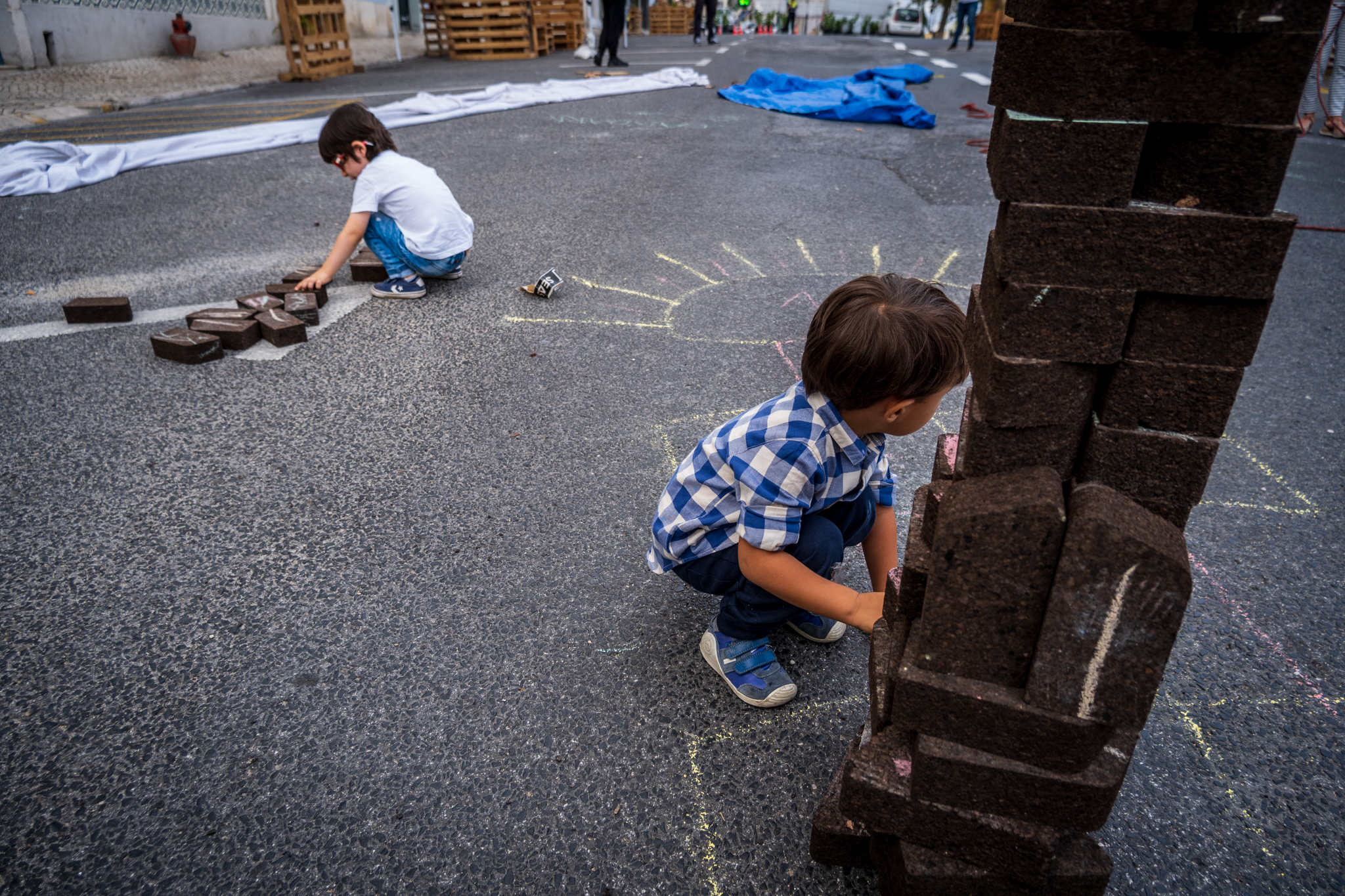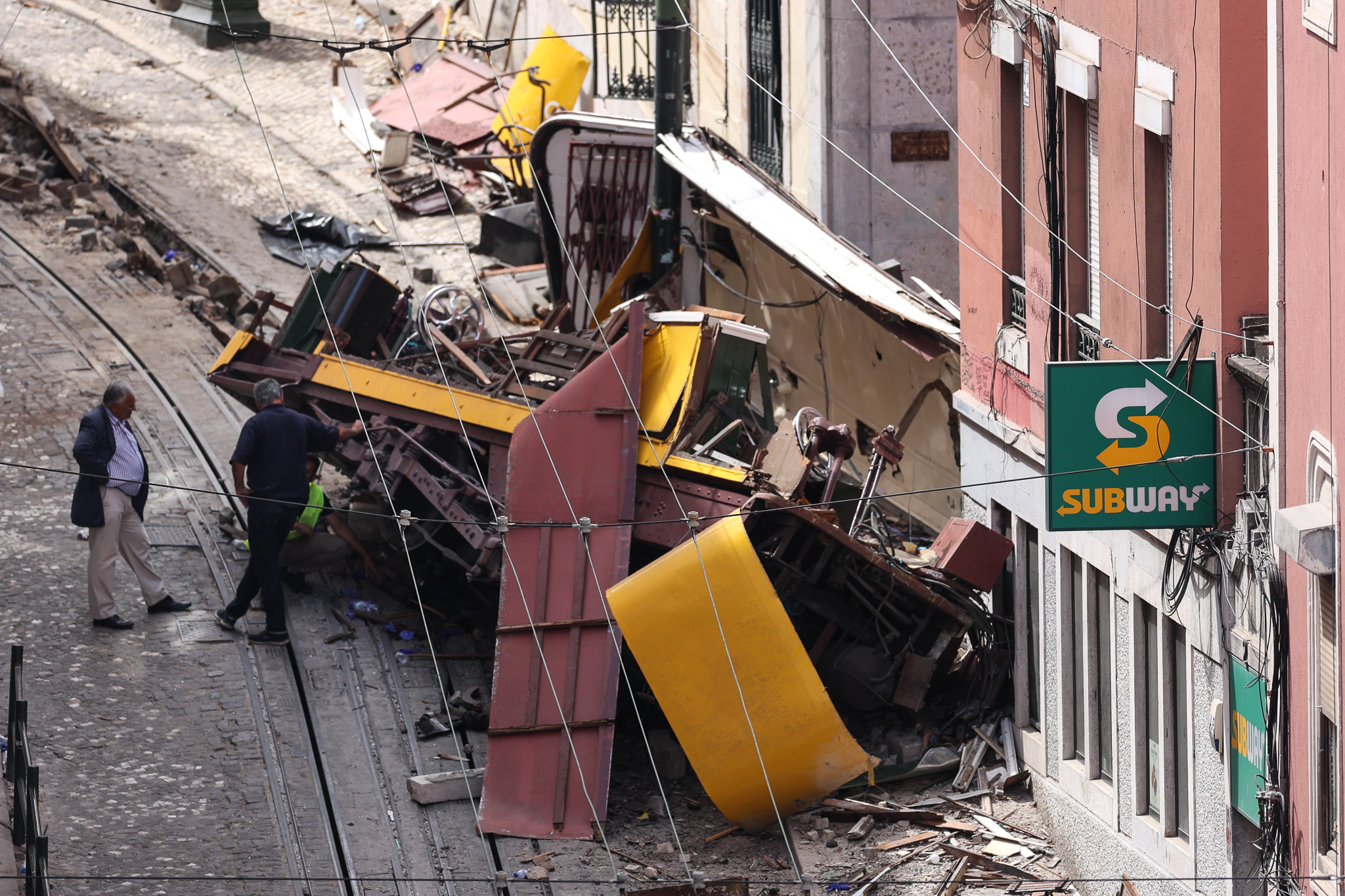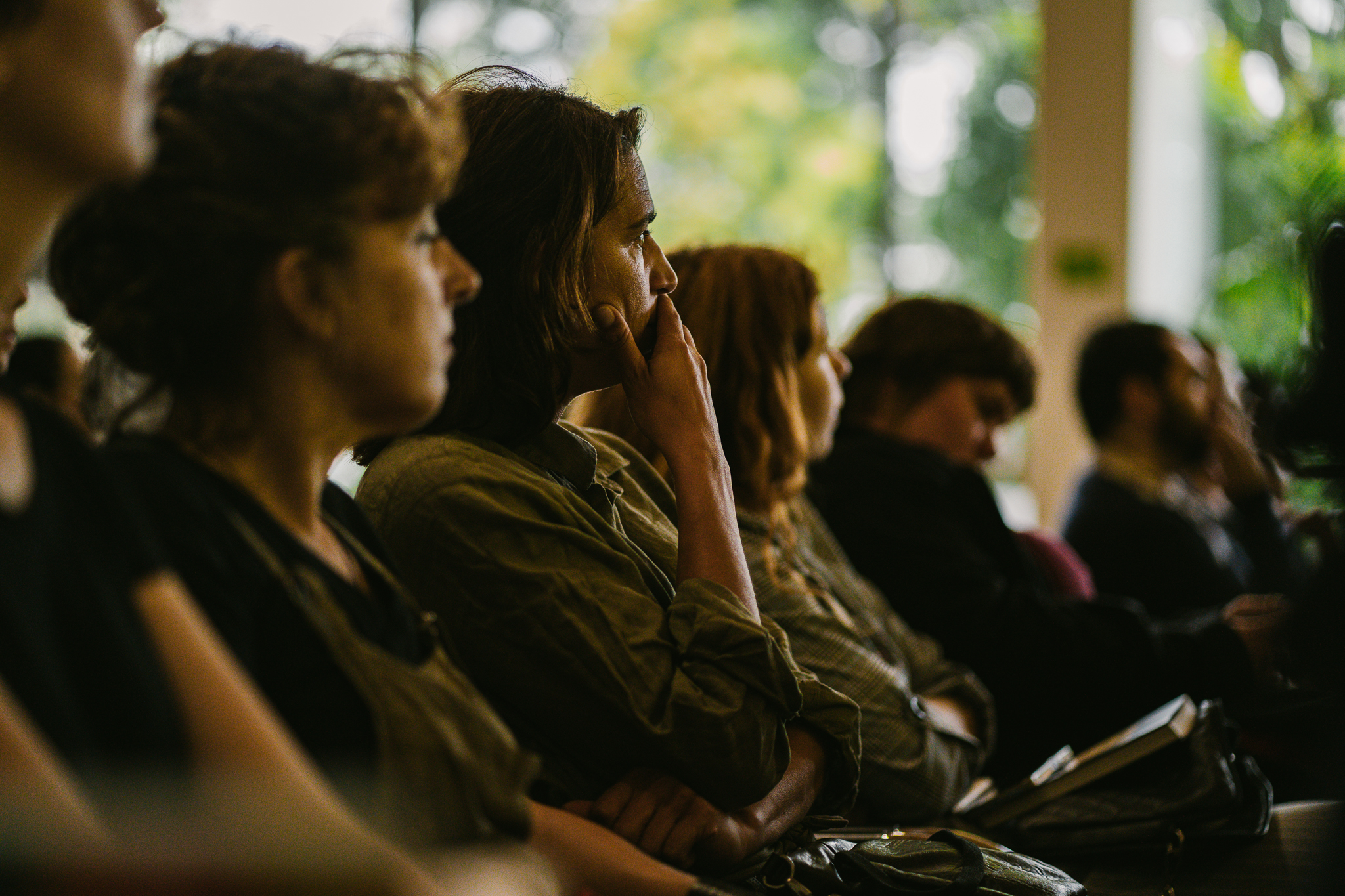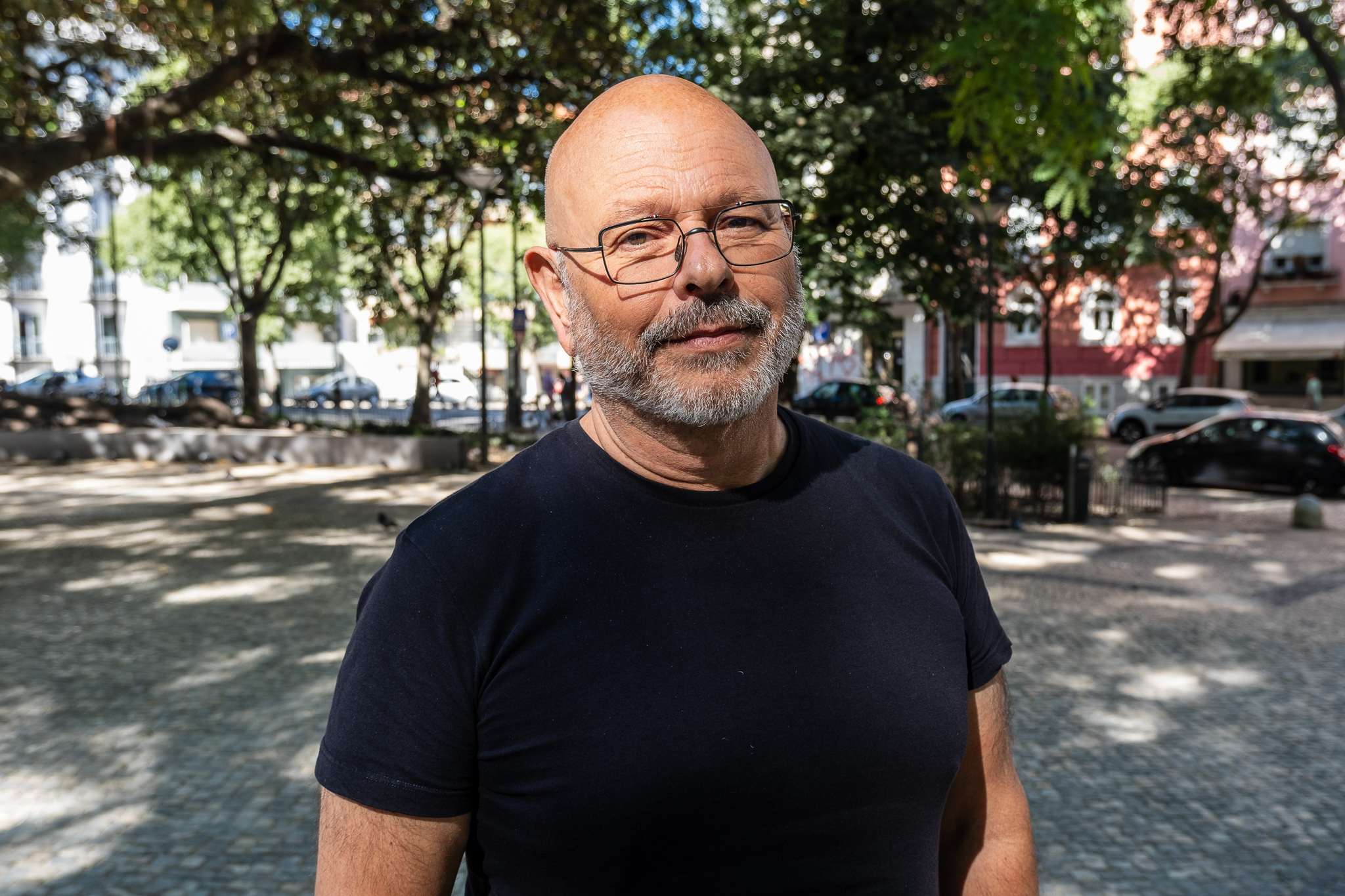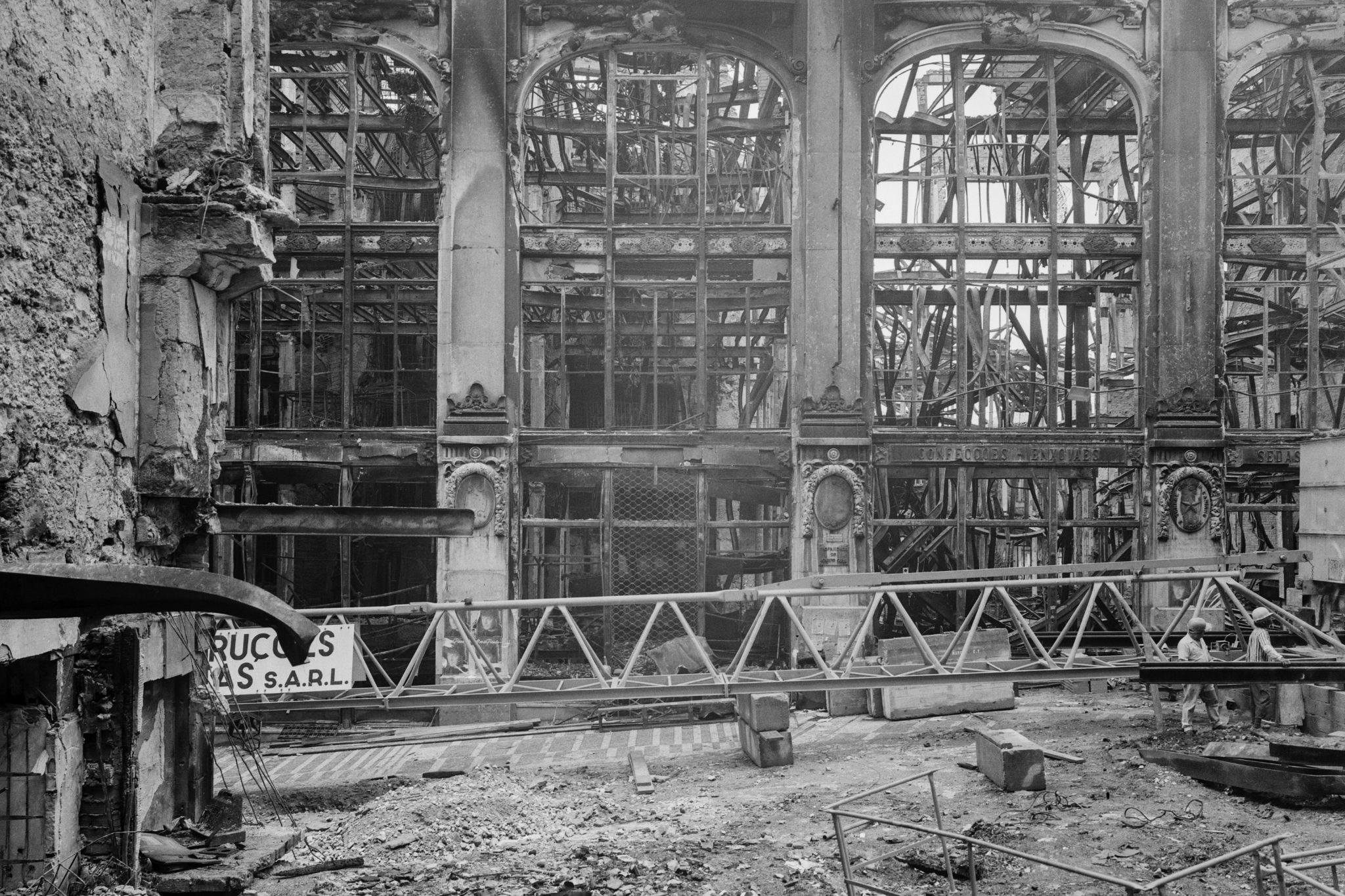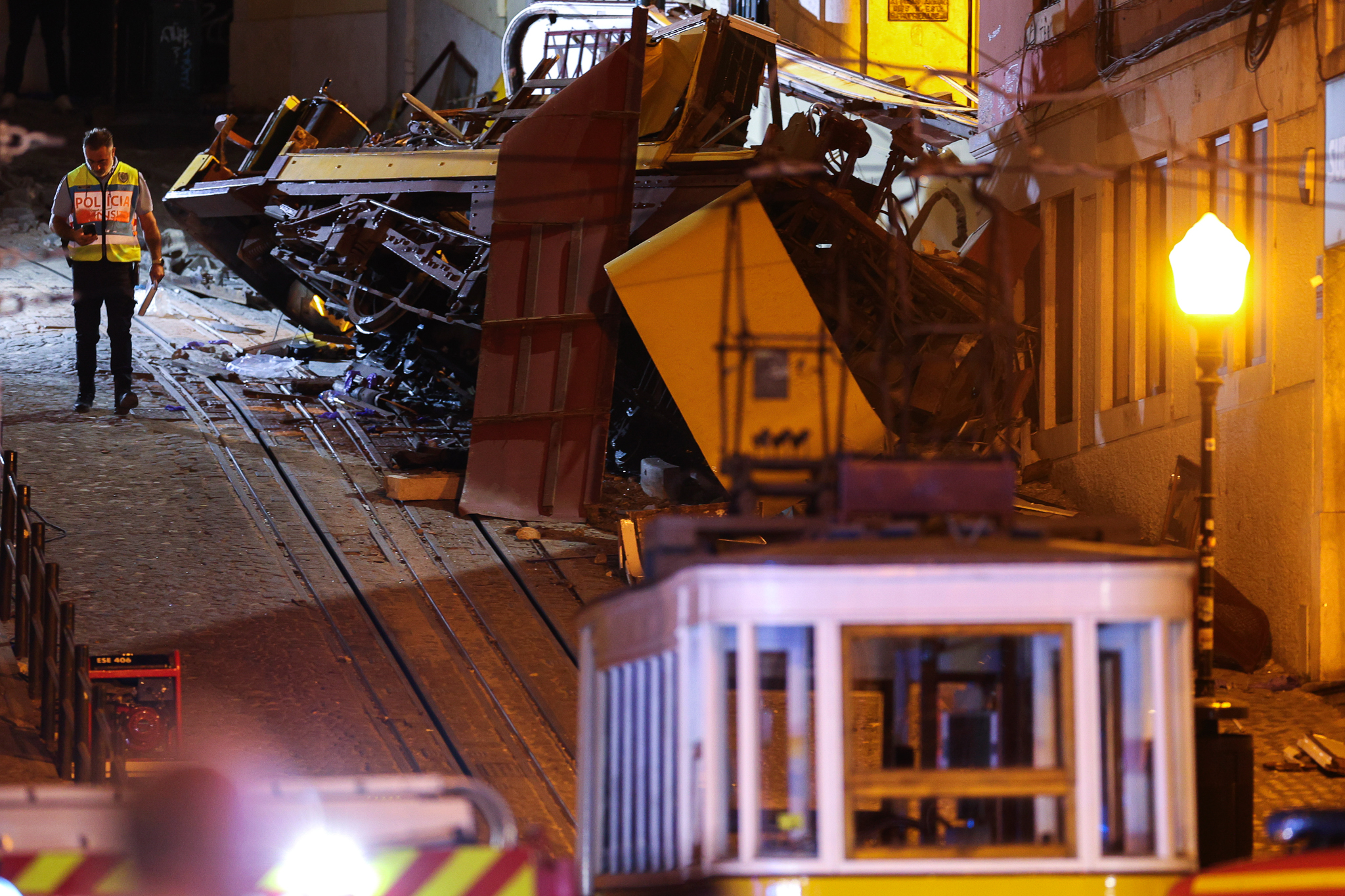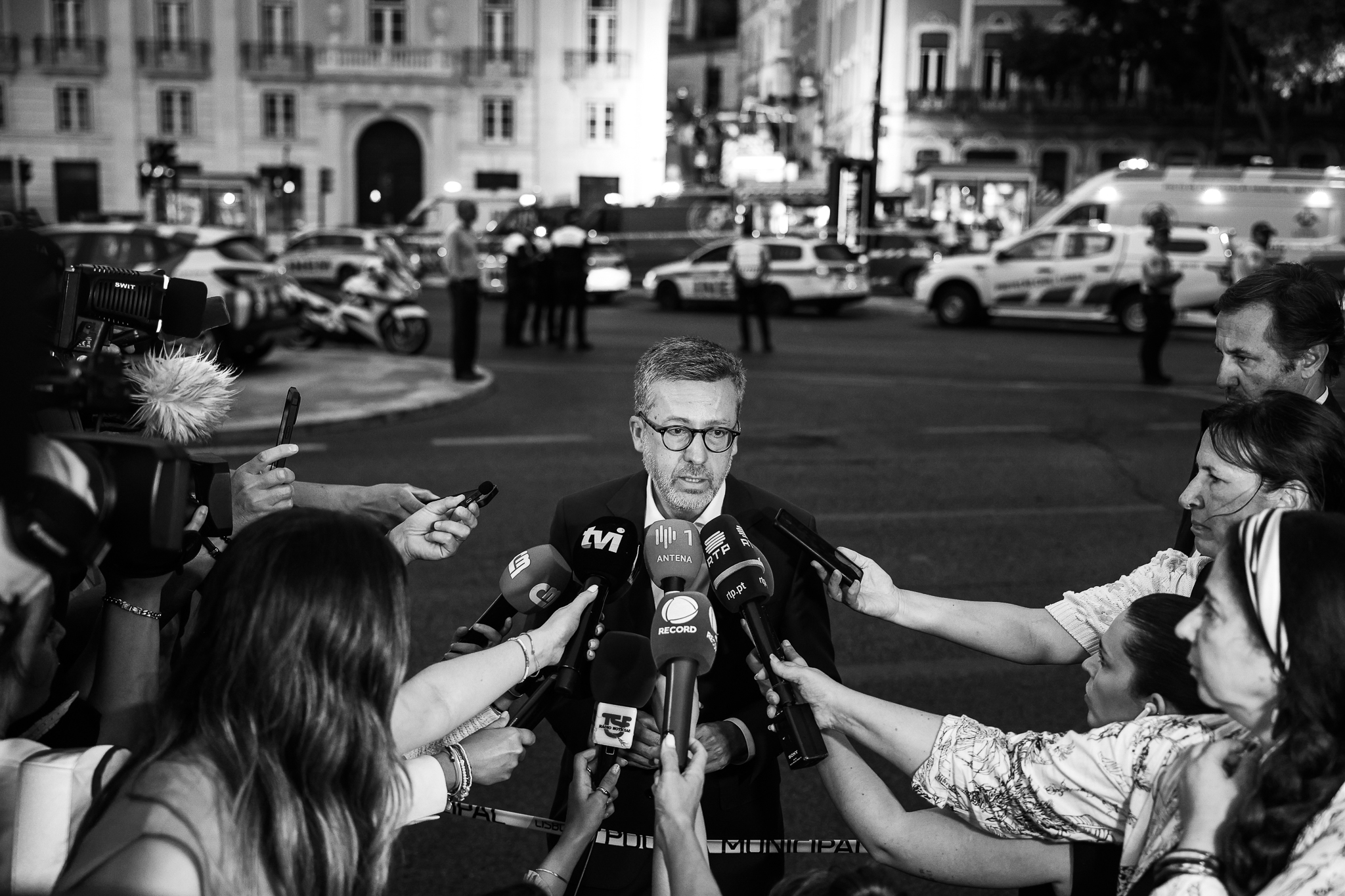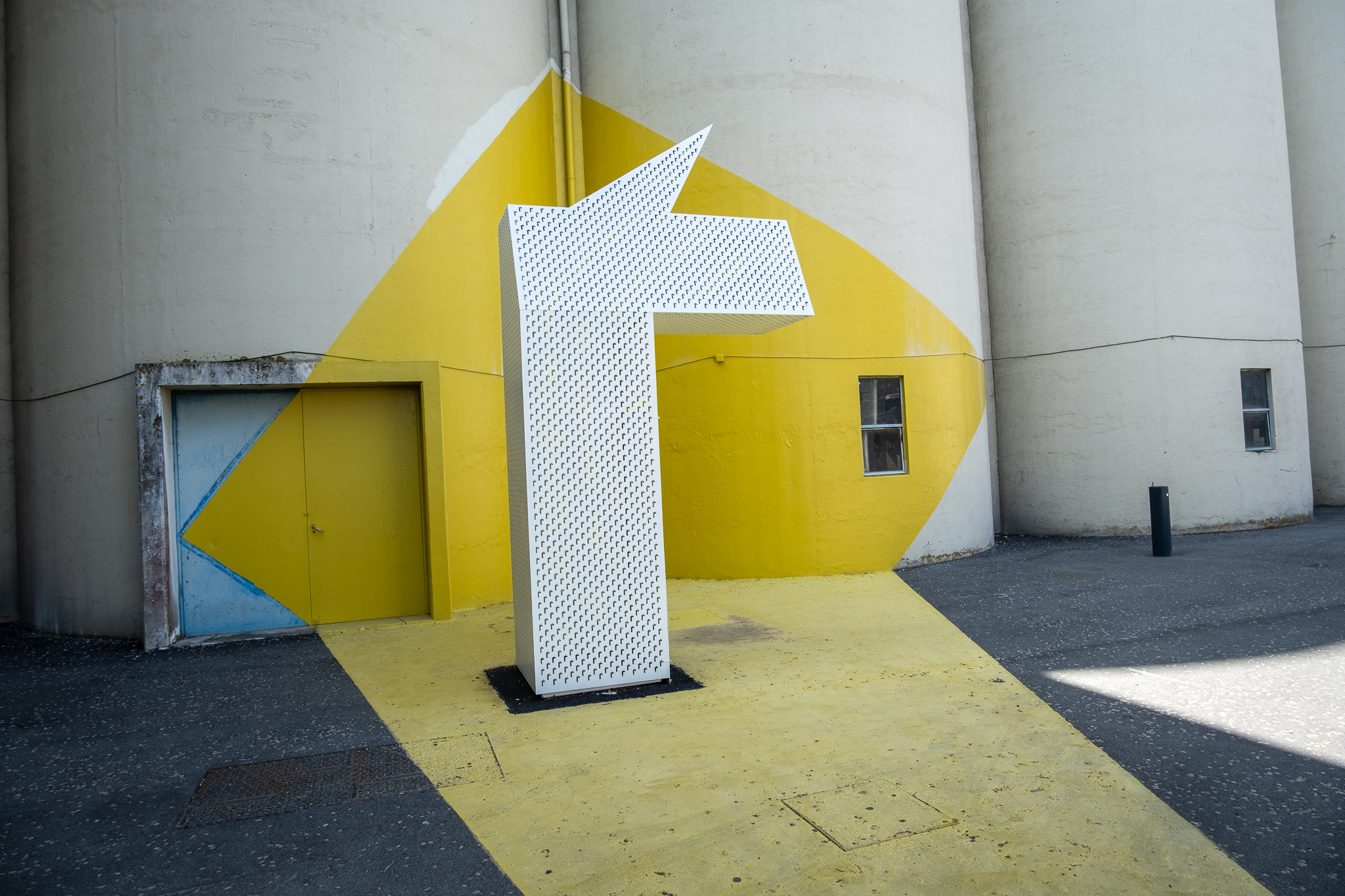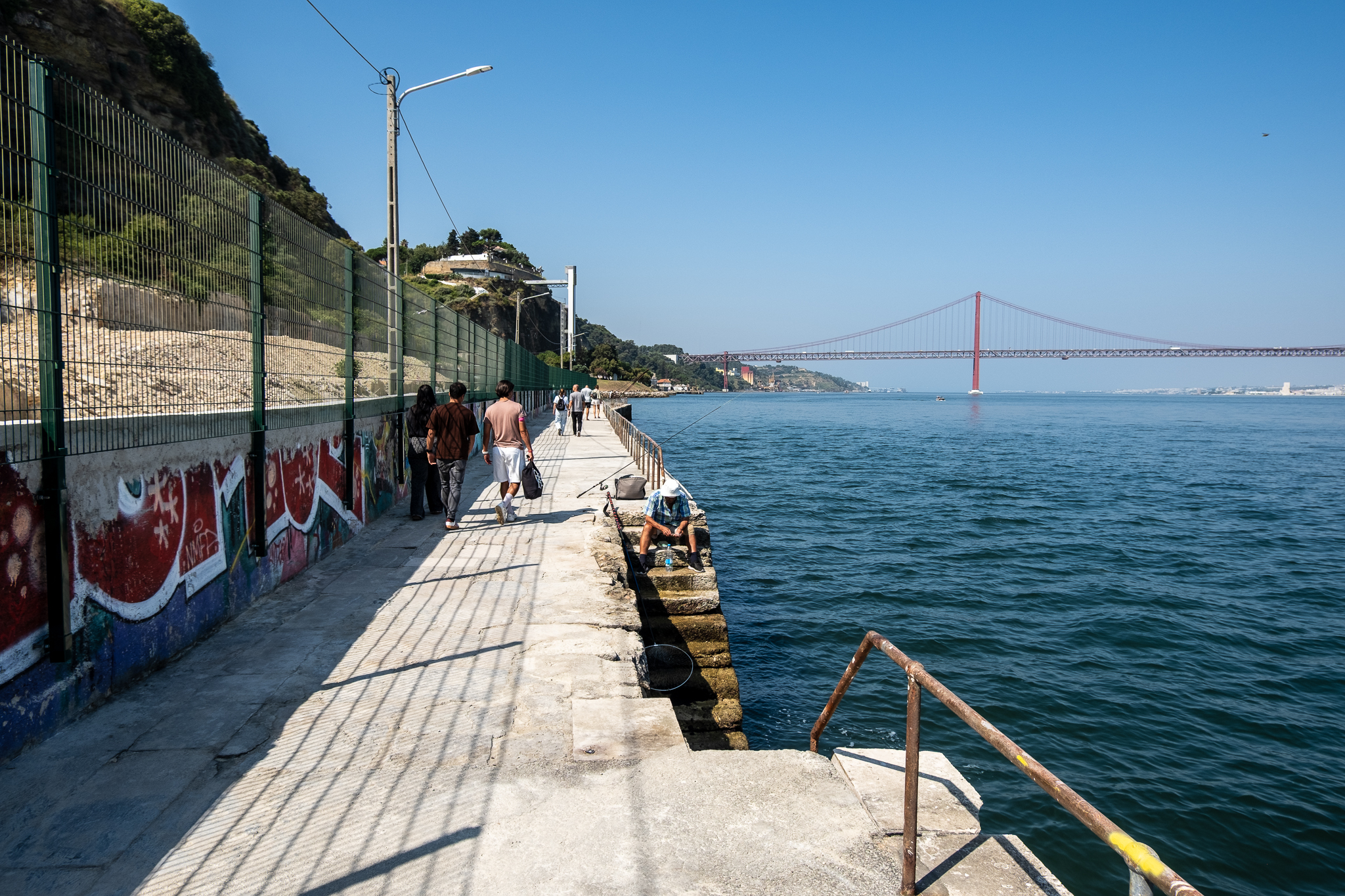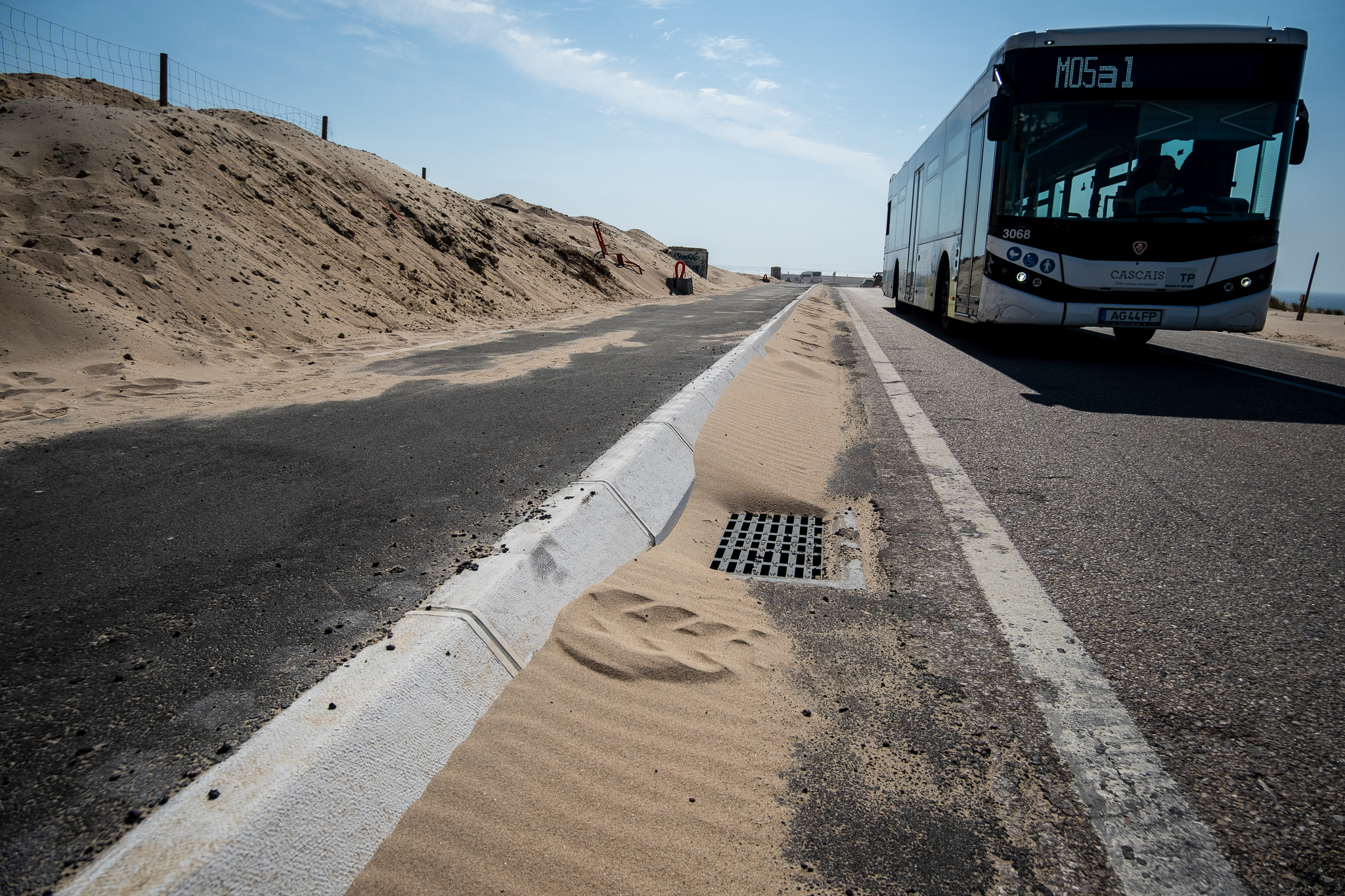A section of Rua da Penha de França was closed to automobile traffic and given back to the children. The result was a full day of smiles and games, in which even the mothers and fathers wanted to take part.

It's after four in the afternoon and several adults have gathered at the foot of the Sapadores Market, on a stretch of Rua da Penha de França that is closed to traffic and open to play. They've come to accompany their children but something seems to be holding them back. Is it shame at exposing themselves to play? Is it fear that they no longer know how to play? We don't know. What is certain is that some of them are infected by the little ones and join in their fun. Others use their phones to record the moment - after all, it's not every day that a neighborhood street is closed to traffic to allow children to go out safely to play.
Last Saturday, October 2, part of Rua da Penha de França was transformed into a "Playstreet". The noise of car engines was replaced by the sound of rolling carts rolling down the asphalt. There were ropes for jumping, pulling or creating anything. There were used tires and drink crates to be used for whatever the imagination could come up with. There were large cloths, chalk, random pieces of wood, balls and blocks that could form a puzzle or something else. "Here we don't have activities for the children, we have loose materials for them to explore at will"explains Liliana Madureira, coordinator of the Brincapé project, which is part of the Playstreets.
O Brincapé describes himself as a "consortium of play" and is a project that is the result of collaborative work between three associations - the APSI - Association for the Promotion of Child Safety, a Ludotempo and the 1 2 3 Xinês monkey. Brincapé started between 2018 and 2019 with the support of the Lisbon City Council through the BIP ZIP program and, since then, has been promoting various activities to promote play in the public space, through the temporary closure of sections of streets to traffic to create the so-called "Playstreets" or "Schoolstreets" (the same concept but applied to school surroundings)This has led to the creation of didactic materials such as the "Routes to Play" or the promotion of community groups of fathers and mothers who, occasionally, in this or that garden in their neighborhood, can meet up with their little ones to play and socialize together.
A Rua da Penha de França has already been a constant in Brincapé's activities itinerary, having been converted into a "Playstreet" for several weekends under the municipal program The Street Is YoursDuring the pandemic, some streets were closed to traffic to increase pedestrian space and meet the demand for terraces. Brincapé will do everything it can to ensure that this exception becomes a habit and that, for example, on the last Saturday of every month it is possible to close this or that street to traffic and give it back to the children.
Liliana says that "Playstreets" are also "a form of protest" to show that public spaces in cities no longer belong to children when cars took over the streets. With these closures, Brincapé seeks to promote play as an innate way of discovering the world. "We have instrumentalized play"explains Liliana, giving as examples the pedagogical games in which we try to "harnessing the energy of discovery and play to teach children what is important".
But this instrumentalization also happens with the incompatibility between school and play: "Playing isn't something you can do while you're at school. You're either at school or you're playing." Today, says Liliana, the "children can only play at a certain time and in a certain space"for example, at the weekend in a garden they can't get to on their own. Playstreets are meant to bring play back to the streets, to the neighborhood streets where the youngest live. With these closures, Brincapé seeks to "annoy a little, but not too much to harass". The most important thing is to generate play. For adults, these events can be spaces to meet and socialize. Liliana gives the example of a "Schoolstreet" outside a school, where by closing the street at the end of a school day and leaving the little ones to play, parents are forced to talk to each other. "It's different from one parent picking up their child at 5pm, then another picking them up at 5:05. They don't cross paths. Here they're made to talk to each other"
The "Playstreets" and "Schoolstreets" thus force older people to stop and experience the space. Brincapé began taking the "Schoolstreets" initiative to two elementary school last school year, closing the space around EB1 Santa Clara and EBI Rosa Lobato Faria for two hours on Fridays in May and June respectively. In Penha de França, Liliana feels that there is a need for regularity so that parents always know when there is a "Playstreet" event and can prepare beforehand to go. "People are waiting for us to return to the street. They ask us when we'll be back." Liliana says that the Penha de França Parish Council is aware of the initiative and is on Brincapé's side; she now hopes that the new council will also be on board so that the "Playstreets" can be more and more regular.



























